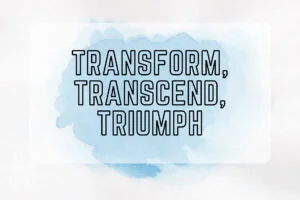The Path To Recovery Is Unique For Every Alcohol Addict
What factors contribute to the varying susceptibility of individuals to alcohol addiction, despite the shared psychological, biological, and social complexities of the disease?
The Myth of Control
No one pours their first drink planning to become addicted. For most, alcohol begins as a social lubricant, a way to unwind, connect, or take the edge off. But for some, that casual drink becomes a trap. They can’t explain why the switch flips, why one drink feels like relief and the next feels like a need.
The truth is, addiction isn’t a matter of weak willpower or poor choices. It’s a biological, psychological, and social storm that some people are simply more vulnerable to. Two people can share the same bottle, one walks away, the other walks into a lifelong struggle. Understanding that difference isn’t just a scientific pursuit, it’s a human one. It’s how we shift from blaming people to actually helping them.
The Science of Vulnerability
Alcohol interacts with the brain’s reward centre, the same system that releases dopamine when we laugh, fall in love, or achieve something meaningful. For some, that first drink delivers an extraordinary flood of pleasure. For others, it’s barely noticeable. That difference lies in brain chemistry and genetics.
People born with lower baseline dopamine levels often experience a sharper spike when they drink, which the brain remembers as this feels good, do it again. Over time, that signal grows stronger, while natural sources of joy, family, hobbies, achievements, start to lose their shine. It’s not that the person wants to prioritise drinking over living; their brain simply rewires to do so.
This isn’t hypothetical. Decades of research show that certain genetic markers and early-life experiences make addiction more likely. The formula is cruelly simple: genetics load the gun, environment pulls the trigger, and alcohol pulls it repeatedly.
The Emotional Blueprint
For many, alcohol doesn’t start as recreation, it starts as relief. The overthinker who can’t turn off their mind. The trauma survivor who feels safer numbed than awake. The person who has spent a lifetime performing stability while secretly unravelling inside.
Alcohol offers an instant but deceptive solution, silence the pain, quiet the noise, flatten the fear. For someone who’s spent years feeling like they’re walking through fire, that first sip feels like rain. But over time, that relief becomes a cage. The brain learns that the only way to feel “normal” again is to drink.
It’s not weakness, it’s a learned survival mechanism. The cruel irony is that what begins as an escape from suffering ends up deepening it. And yet, this emotional underpinning is often ignored when society labels people as “alcoholics,” as if the problem begins with the bottle instead of the human holding it.
When Drinking Becomes a Lifestyle
Alcohol isn’t just normalised, it’s celebrated. Birthdays, promotions, heartbreaks, funerals, all toasted with the same substance. In South Africa, as in most of the world, refusing a drink often draws more suspicion than overindulging.
Social drinking blurs the line between fun and dependence. “Wine o’clock” jokes and “just one more” memes disguise the reality that many people drink not to socialise, but to cope. Professionals who function flawlessly by day quietly self-destruct at night. Parents numb their exhaustion with “mommy juice.” College students binge because that’s what they’ve been taught freedom looks like.
This social camouflage makes early addiction nearly invisible. We don’t recognise the warning signs when drinking fits neatly into cultural rituals, until the person stops being able to function without it.
The Moment It Crosses the Line
Addiction doesn’t happen in one night. It creeps in quietly, from “I deserve a drink” to “I need a drink.” The shift is subtle but devastating. Here’s the truth, addiction isn’t about how much someone drinks, it’s about what happens when they try to stop. If the thought of going a week without alcohol fills you with unease or panic, that’s not control, that’s dependence.
Common red flags include planning your day around alcohol, lying about how much you drink, feeling guilt or anxiety the next morning, and needing more alcohol to feel the same effect. These are not moral failings, they’re neurological warning signs that the brain’s chemistry is no longer self-regulating.
Alcoholism as a Disease, Not a Defect
In 1956, the American Medical Association recognised alcoholism as a disease. It wasn’t a gesture of sympathy, it was a statement of fact. The same way diabetes involves dysfunction in how the body processes sugar, alcoholism involves dysfunction in how the brain processes reward and stress.
Addiction follows a progressive course, it worsens over time, can be treated but not cured, and is characterised by predictable symptoms. Left untreated, it destroys not only the body but the mind and relationships that sustain it.
When we label addiction as a choice, we strip people of their humanity. Nobody “chooses” a disease that wrecks their finances, family, and dignity. Recognising it as a medical condition isn’t an excuse, it’s the foundation for effective treatment.
Help For You
Facing your own drinking or drug use can feel overwhelming, but ignoring it usually makes things worse. Here you’ll find clear information on addiction, self-assessment, and what realistic treatment and recovery options look like.
Help A Loved One
If someone you care about is being pulled under by alcohol or drugs, it can be hard to know when to step in or what to say. This section explains warning signs, practical boundaries, and how to support them without enabling.
Frequent Questions
Most families ask the same tough questions about relapse, medical aids, work, and what recovery really involves. Our FAQ gives short, honest answers so you can make decisions with fewer unknowns.
The Mental Health Connection
Half of all people battling addiction also struggle with another mental health condition, whether it’s depression, anxiety, trauma, or bipolar disorder. This overlap, called a co-occurring disorder, turns recovery into a layered challenge.
Many drink to manage symptoms of mental illness, a pattern known as self-medication. The problem is that alcohol, while numbing in the short term, amplifies those same symptoms in the long run. It deepens depression, fuels anxiety, and triggers mood instability.
This relationship is circular and cruel, mental illness drives drinking, and drinking worsens mental illness. That’s why treating only one side of the equation never works. True recovery requires integrated treatment, where both the addiction and the underlying emotional pain are addressed together.
The Only Way Forward
Integrated treatment doesn’t mean just detoxing the body, it means healing the whole person. Detox clears the chemicals. Therapy rewires the thinking. Fellowship rebuilds the soul. Effective programmes begin with assessment, identifying the full picture: substance use, mental health history, trauma, relationships, and lifestyle. From there, stabilisation ensures the person’s safety through medical supervision, managing withdrawal symptoms, and restoring basic health.
Next comes therapy, individual counselling, group sessions, and cognitive-behavioural work that helps reframe thought patterns and build coping skills. Recovery isn’t about “not drinking.” It’s about learning to live differently, to manage stress, express emotion, and find meaning without alcohol as the crutch.
The power of fellowship cannot be understated. Whether through 12-step programmes like Alcoholics Anonymous or secular peer groups, connection replaces isolation. It reminds people they’re not broken, they’re human, and healing is possible through community. Finally, aftercare sustains recovery. Addiction is chronic, meaning ongoing support, therapy, relapse prevention, and lifestyle structure, keeps people stable long after leaving rehab.
At We Do Recover, our approach integrates every piece of this puzzle, from detox to long-term aftercare, helping individuals rebuild their lives from the inside out.
From Rock Bottom to Renewal
Rock bottom isn’t a single moment. It’s different for everyone, a health scare, a broken relationship, an empty bank account, or simply the quiet awareness that you’ve lost control. But you don’t have to shatter completely before you decide to change.
Recovery isn’t about punishment or deprivation, it’s about rediscovery. People in long-term sobriety often describe it not as losing something, but as finally seeing clearly. They find joy that isn’t chemically induced, relationships that are genuine, and a self that’s no longer hidden behind hangovers and excuses.
The hardest part is the first step, admitting you need help. But once you do, an entire system of care, support, and science is waiting. The body can heal. The brain can rewire. And life can be rebuilt.
How Families Can Help Without Losing Themselves
Families often try to fix what they didn’t break. They beg, threaten, plead, or enable, cycling through guilt and exhaustion. But addiction isn’t something love alone can cure, it needs boundaries, education, and professional help.
Families can support by focusing on what they can control, setting clear boundaries, refusing to fund destructive behaviour, and encouraging treatment. Joining family therapy or support groups like Al-Anon helps loved ones understand that compassion and accountability can coexist.
The mantra holds true, you didn’t cause it, you can’t control it, but you can contribute to recovery. The goal isn’t to rescue the addict, it’s to stay healthy enough to help them when they’re ready.
Understanding Over Judgment
We need to stop moralising addiction. Alcoholism isn’t a sign of weakness, it’s a medical and psychological condition that thrives in silence and shame. When we frame it as failure, people hide. When we frame it as illness, people heal.
Every time we speak about alcoholism as a disease, we chip away at stigma. Every time we show compassion instead of condemnation, we open the door for someone to ask for help.
Recovery isn’t a privilege reserved for the lucky. It’s available to anyone willing to face the truth, that addiction is not about being bad, but about being unwell. And like all illness, it deserves empathy, evidence-based treatment, and hope.
If someone you love is struggling, reach out today. Don’t wait for rock bottom. Help them build a new foundation instead, one that begins with understanding, not shame. We Do Recover can connect you to the help that saves lives, rebuilds families, and reminds us that no one is beyond repair.

Sober living homes are for people to live in a supportive environment after completing a…

Alcoholism is a part of our society that we cannot simply ignore. It effects not…

The Question That Sounds Practical Until It Turns Dangerous “Can I detox from alcohol at…